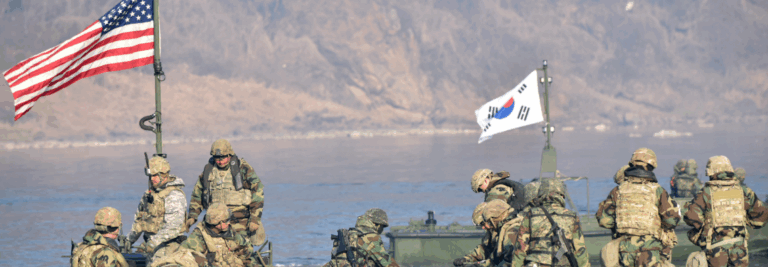The “fall” of Afghanistan to the Taliban on August 15, with President Ashraf Ghani fleeing the country on the same day, will likely lead many analysts to conclude that the two-decades-long US-led effort in the country has ended in failure. For some, the reputational blow to the United States stemming from this “complete failure” will have repercussions for other longstanding American security commitments, including Taiwan.
Propagandists for the Chinese regime will be encouraged to cultivate the view, already being spread in other circles, that the Biden Administration’s decision to leave Afghanistan should serve as a warning to countries like Taiwan not to rely too deeply on US security assistance. For them, no amount of reassurances by top US officials, including national security adviser Jake Sullivan, will be sufficient to disabuse them of the belief that the US can no longer be counted on. Others, meanwhile, have claimed that the decision has left President Biden’s reputation in tatters.
This view, however, is deeply flawed. For one thing, while US-led efforts at nation-building in Afghanistan can be said to have come well short of stated objectives, the primary mission—one of counterterrorism, to erode al-Qaeda’s ability to use the territory to orchestrate and launch future terror attacks against the United States or its allies—has been relatively successful. The Taliban, despite emerging victorious after 20 years of war, can nevertheless be expected to have learned a few lessons from allowing a global terrorist entity to use Afghanistan as a springboard for such activities, chief among them the costs to its ability to remain in power if ever the US military were once again compelled to unseat it.
What also needs to be said about the US experience in Afghanistan is that, despite the costs and much-less-than-optimal exit from the country, it has, for better or worse, demonstrated persistence. To argue that its decision to leave Afghanistan serves as a warning to countries like Taiwan that are dependent on its security guarantees to reduce their expectations is invidious: notwithstanding the results, the United States and its allies from the International Security Assistance Force (ISAF) stayed the course much longer than anyone had expected when the first US soldiers set foot on Afghan soil soon after the September 11, 2001 terrorist attacks in New York City and Washington, D.C.
Not Isolationism, But Rebalancing
Rather than regard it as retrenchment and a return to an isolationist posture, the US pullout from Afghanistan should instead be regarded as the latest in a series of actions that aim to rebalance US strategy and capabilities toward the region of utmost importance to the United States: the Indo-Pacific. Although the US presence in Afghanistan in recent years had drawn down considerably from a combat role to one of training and support to the Afghan security apparatus, that commitment nevertheless continued to sap resources and served as a distraction at a time when the US military and diplomatic apparatus needed to deepen its engagement with countries in the Indo-Pacific.
While instability in Afghanistan will continue to pose a modicum of threat to US and regional security, this is one that can nevertheless be managed by the United States and regional security partners. For the foreseeable future, though, Afghanistan will not represent the kind of threat that an assertive and increasingly authoritarian China poses to a region crucially important to the global economy and to the sustainment of the United States as a force for stability. The Taliban and other extremist groups in Afghanistan may threaten neighboring countries, but they do not represent an existential threat to the world order: China does, as do, to a lesser extent, North Korea, Iran, and Russia. (If, at some point in future, Afghanistan once again provides hospitality to organizations like al-Qaeda or ISIS that plan on launching attacks against the United States or its allies, then the response should be limited to counterterrorism while avoiding the quicksand of state-building.)
A rebalance was therefore in order, and it is, at long last, happening. Counterterrorism and counterinsurgency no longer have the primacy that they did during the first decade of the 21st century; the decision to remove US forces from Afghanistan is a recognition that priorities have changed, and that the United States can no longer, if it ever could, afford to remain deeply involved in Afghanistan while the world’s second-largest economy was using that distraction (along with that of the United States’ Iraq misadventure) to rearrange the chessboard to its advantage.
There is a high likelihood that Beijing will use the United States’ exit from Afghanistan to exacerbate its propaganda against countries like Taiwan and Japan in a bid to cause apprehensions about the reliability and sustainability of US commitments. Through these, it will seek to fuel fears of abandonment with the hope that such perceptions will convince leaders to cut a deal with China. Another element of Chinese propaganda will depict the withdrawal as an abject failure and another example of the weakness of the US-led order, no doubt to be contrasted with the infallibility of the alternative proposed by the Chinese Communist Party (CCP).
It is rather unlikely, however, that Beijing will believe its own rhetoric on the matter and regard the US pullback as an indication that Washington has abandoned all of its commitments to its partners around the world—a conclusion which could, in turn, encourage the Chinese regime to engage in more risk-taking in the Indo-Pacific, perhaps even to initiate a campaign to annex Taiwan. This would constitute a highly risky miscalculation on Beijing’s part, which has had plenty of opportunities over the past seven months of the Biden Administration to learn what its strategic outlook looks like. Still, to further reduce the risks of Beijing’s miscalculation, the United States should do everything in its power to reaffirm its longstanding commitments to its allies and partners, including Taiwan. This would serve to reassure decision makers in those capitals (and US officials have already been communicating the ramifications of the US withdrawal from Afghanistan), and to signal to Beijing, in no uncertain terms, that the time isn’t ripe for destabilizing adventurism. In fact, with commitments to Afghanistan a thing of the past, the United States should from now on be more clearly focused on its strategic posture and equipped with greater resolve to ensure stability in those areas that characterize its new geopolitical template.
China Next?
Mocking editorials and posturing notwithstanding, Beijing is not entirely in celebratory mode over the US’ decision to leave Afghanistan. Despite the low-intensity warfare that continued over the years, the US presence nevertheless had a stabilizing effect on the country. That presence will be no more, and with that comes a return to uncertainty, radical rule, and the high likelihood of a re-fragmentation of Afghanistan as various competing militant organizations—of which the Taliban is just one among many—will have lost their focus of unity. Extremist groups that temporarily set their differences aside to combat a common external enemy—the United States plus ISAF—are expected to return to the status quo ante of violent rivalries.
For China, this means the potential for greater instability spilling from Afghanistan into Central Asia and greater mobility for extremist organizations—including radical elements who may be inclined to target the Chinese state due to its actions in the Xinjiang Uyghur Autonomous Region (XUAR, 新疆維吾爾自治區). Regional instability will in turn threaten China’s ambitions surrounding its Belt and Road Initiative (BRI, 一帶一路). It is not surprising, therefore, that weeks before the fall of Kabul to the Taliban, senior Chinese officials, including State Councilor and Foreign Minister Wang Yi (王毅), had held meetings with top Afghan Taliban officials, including the Taliban leader Mullah Abdul Ghani Baradar. Beijing has also signaled its intention to play a greater role in the Afghan economy, from reconstruction to greater access to the extractive industry. A more visible Chinese presence—presumably in collaboration with China’s regional partner, Pakistan—will not only turn China into a new player in the proxy contest between India and Pakistan conducted in Afghanistan and the disputed Kashmir region, but also risks leading to a securitization of its civilian presence in Afghanistan if, and when, its own nationals become the objects of local discontent. Thus, what at the outset may look like a god-given opportunity for China to fill the vacuum left by the US/ISAF withdrawal by cozying up to the Taliban could turn into a distraction that saps Chinese capabilities—one that could require greater People’s Liberation Army (PLA, 中國人民解放軍) and People’s Armed Police (PAP, 中國人民武裝警察部隊) forces along an increasingly unstable Central Asian border region.
Such an outcome would, in turn, reduce pressure on Taiwan and claimants in the East and South China Seas, as the Chinese will be unlikely to encourage the emergence of two simultaneous security contingencies on two separate fronts. As such, instability in Afghanistan, accompanied by a greater role for China in attempts to stabilize the country and its peripheries, could lead to greater stability in the Taiwan Strait, where only a major “provocation” would compel the Chinese regime to exacerbate tensions.
The main point: Portrayed as a defeat for two decades of US efforts in the war-ravaged country, the US withdrawal from Afghanistan is instead a necessary strategic adjustment that will help Washington focus its attention and capabilities on the part of the world where a real existential threat to the world order has been reconfiguring the chessboard: the Indo-Pacific.



